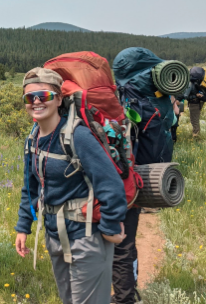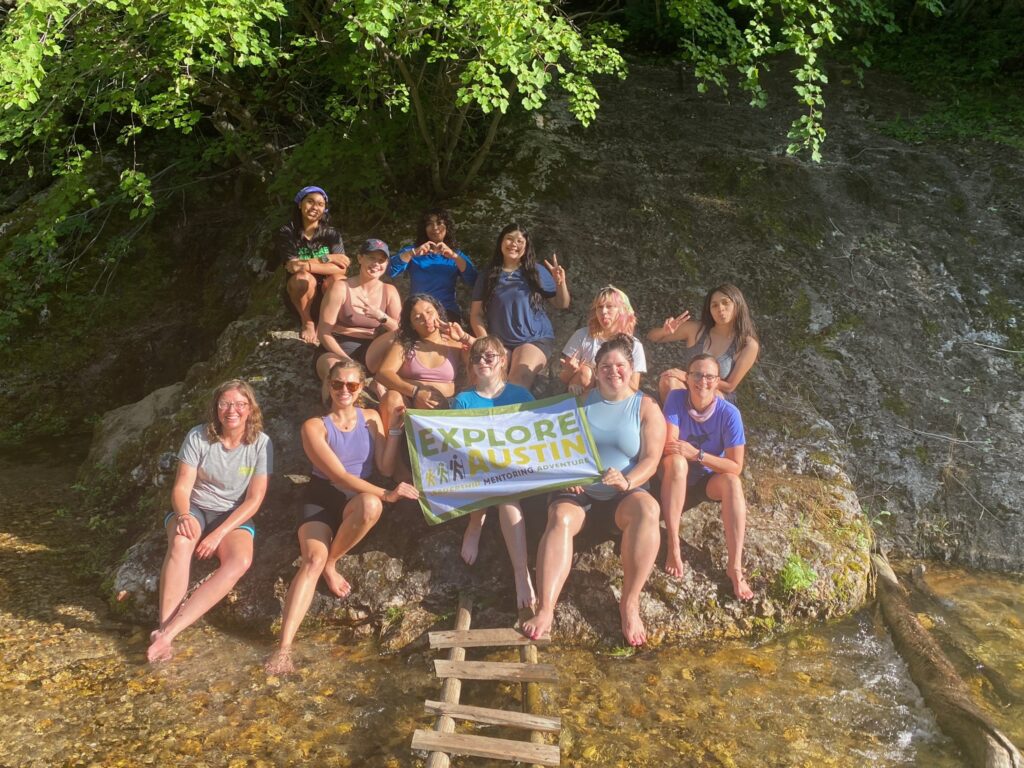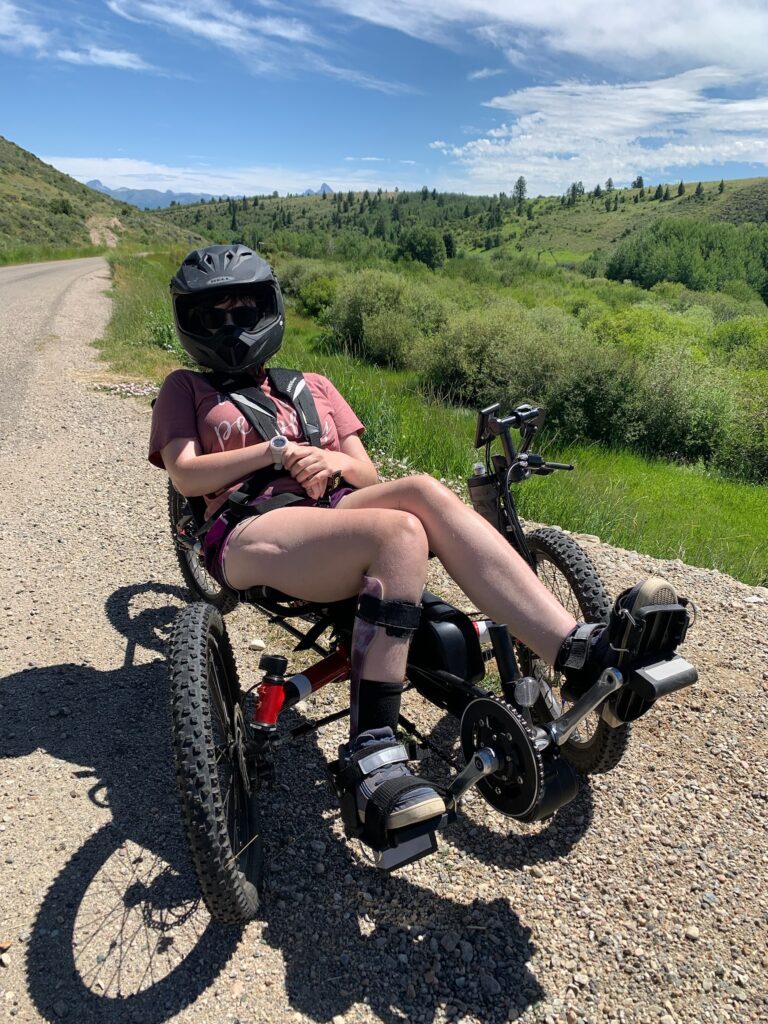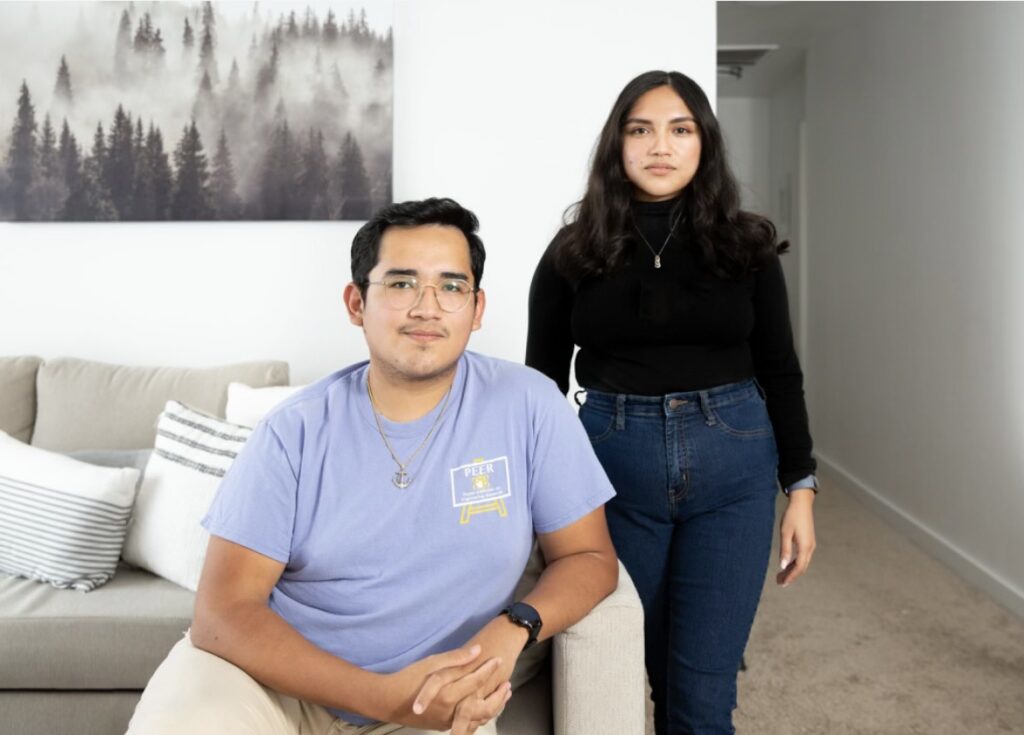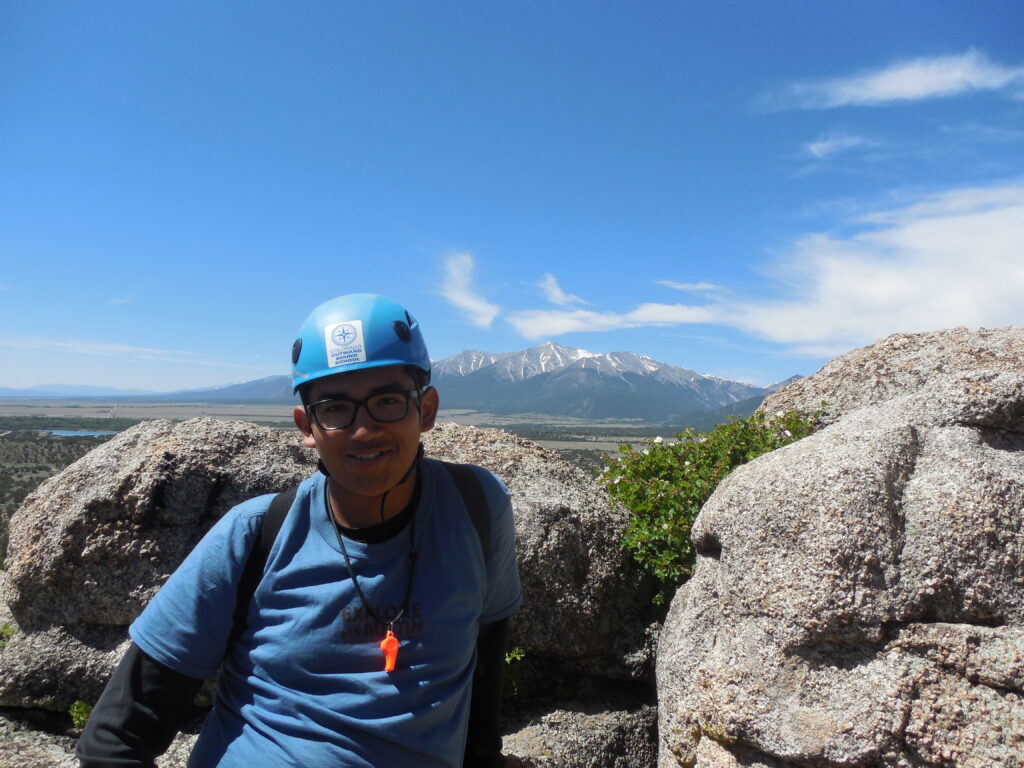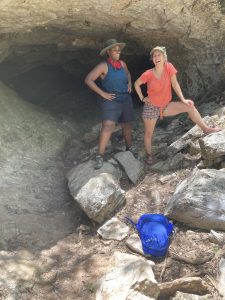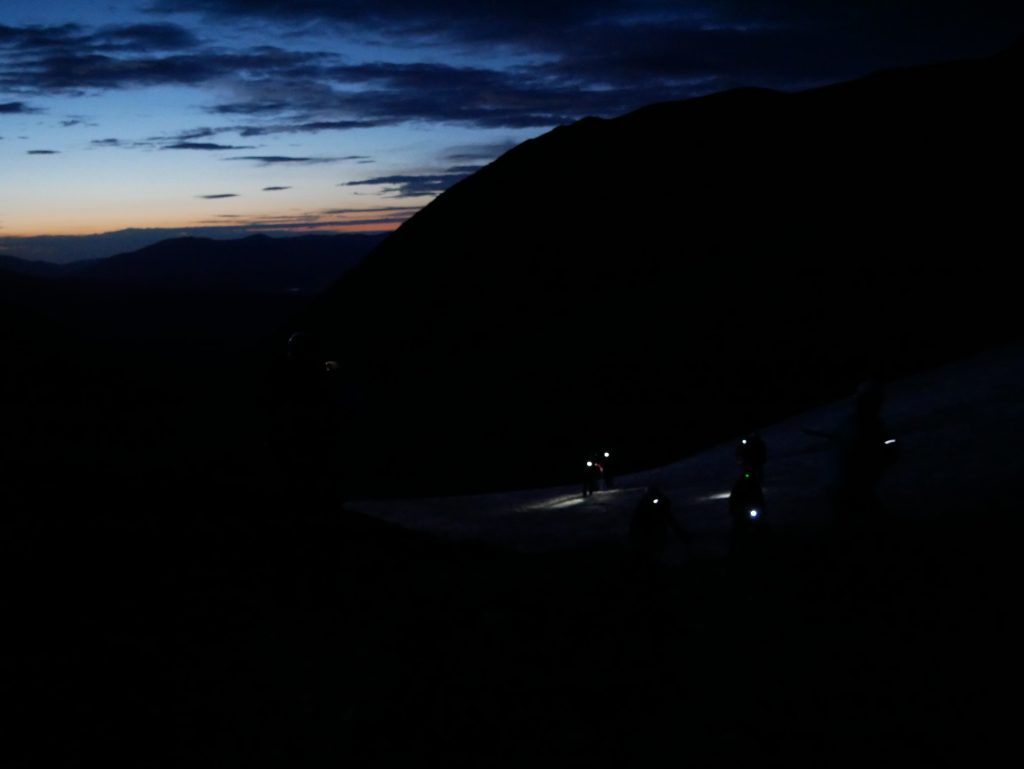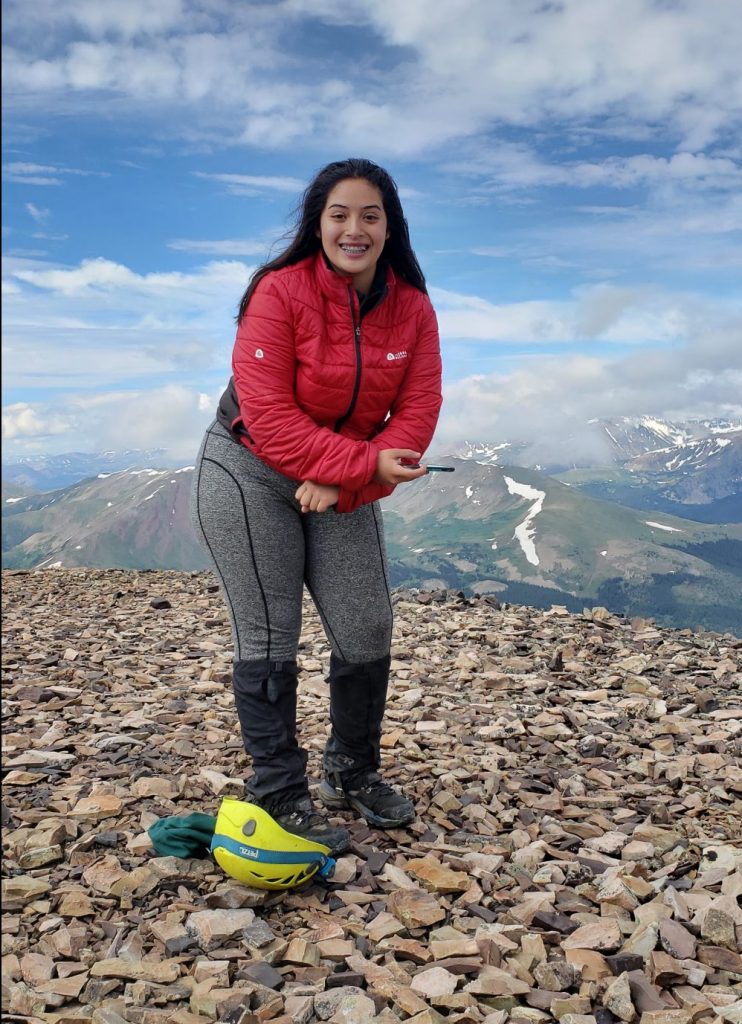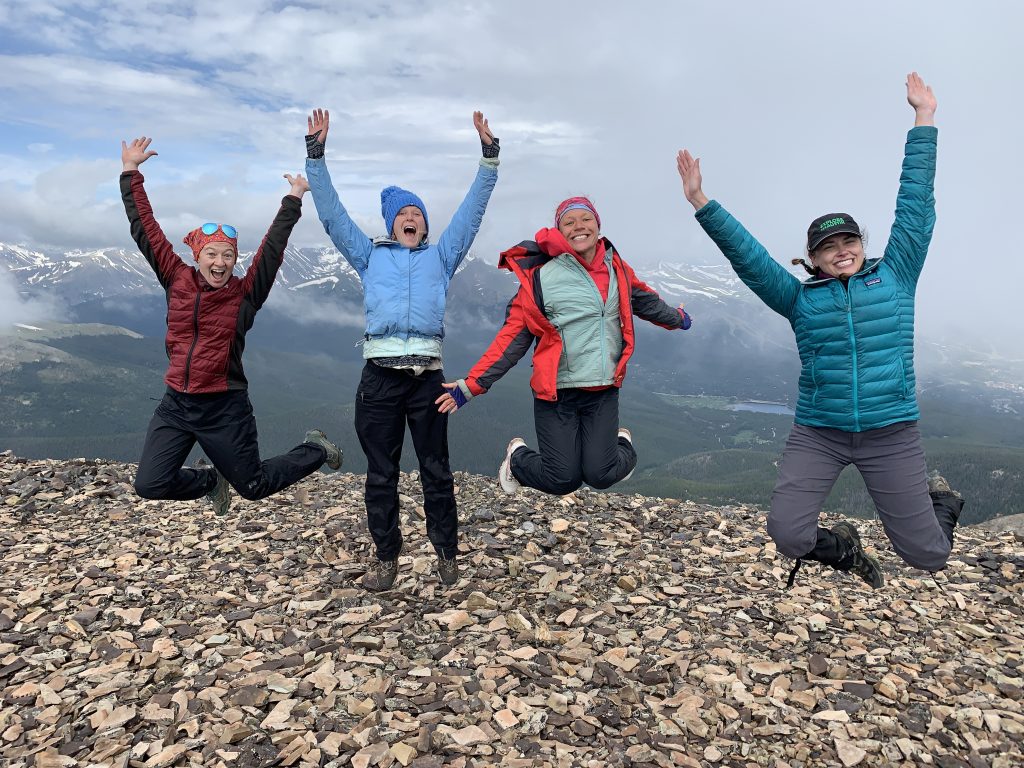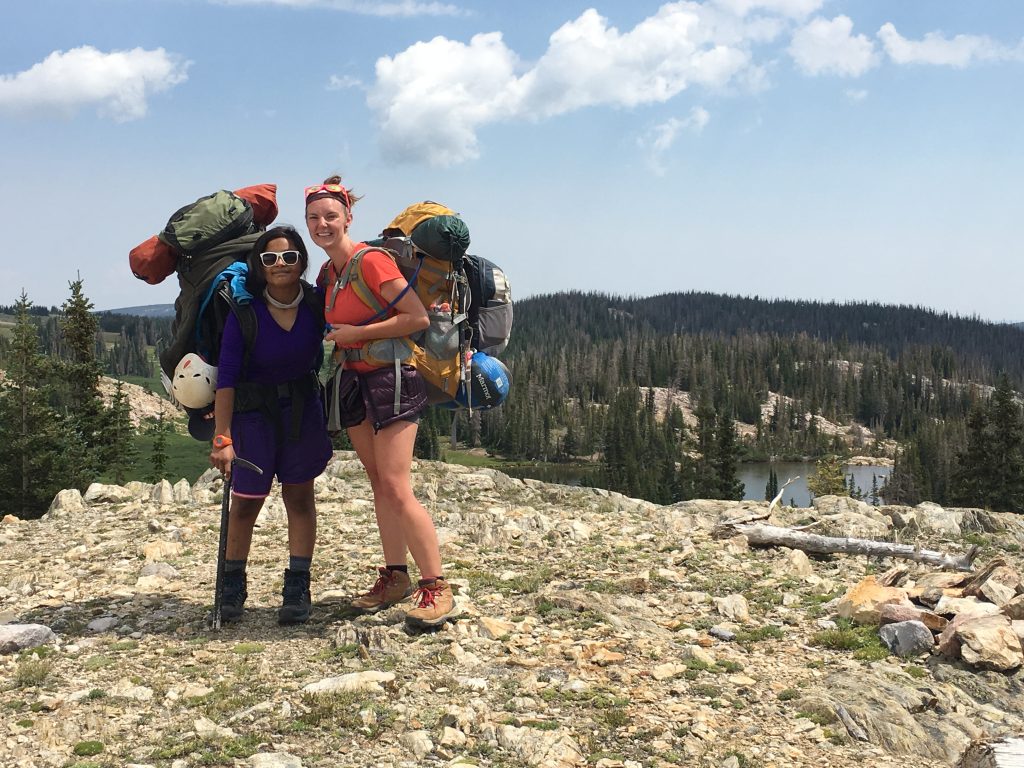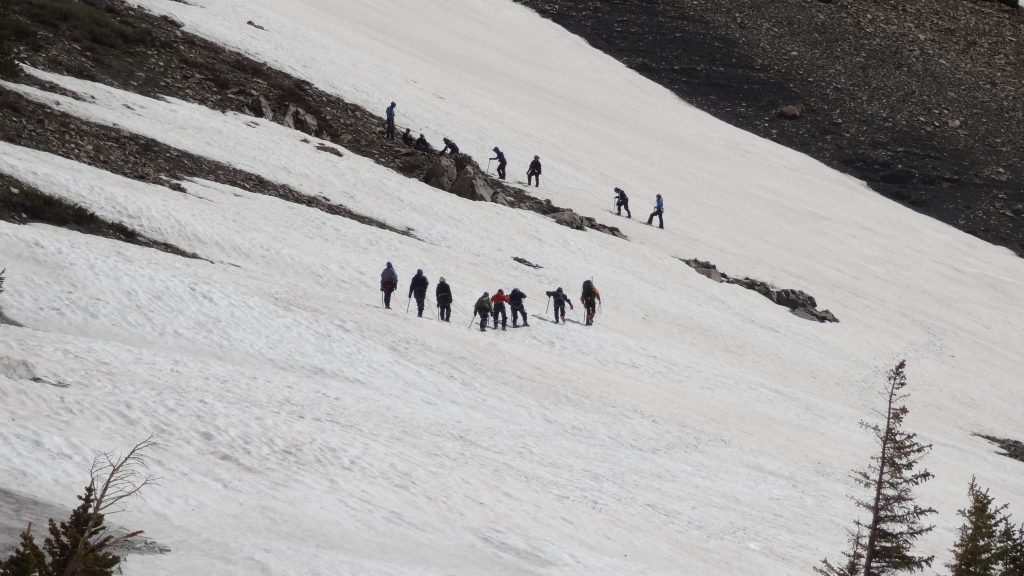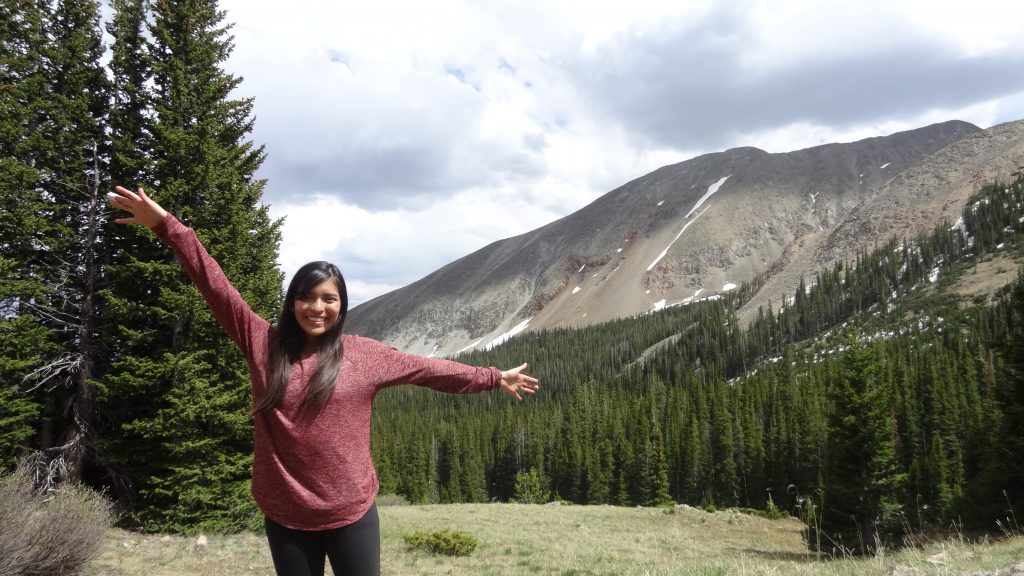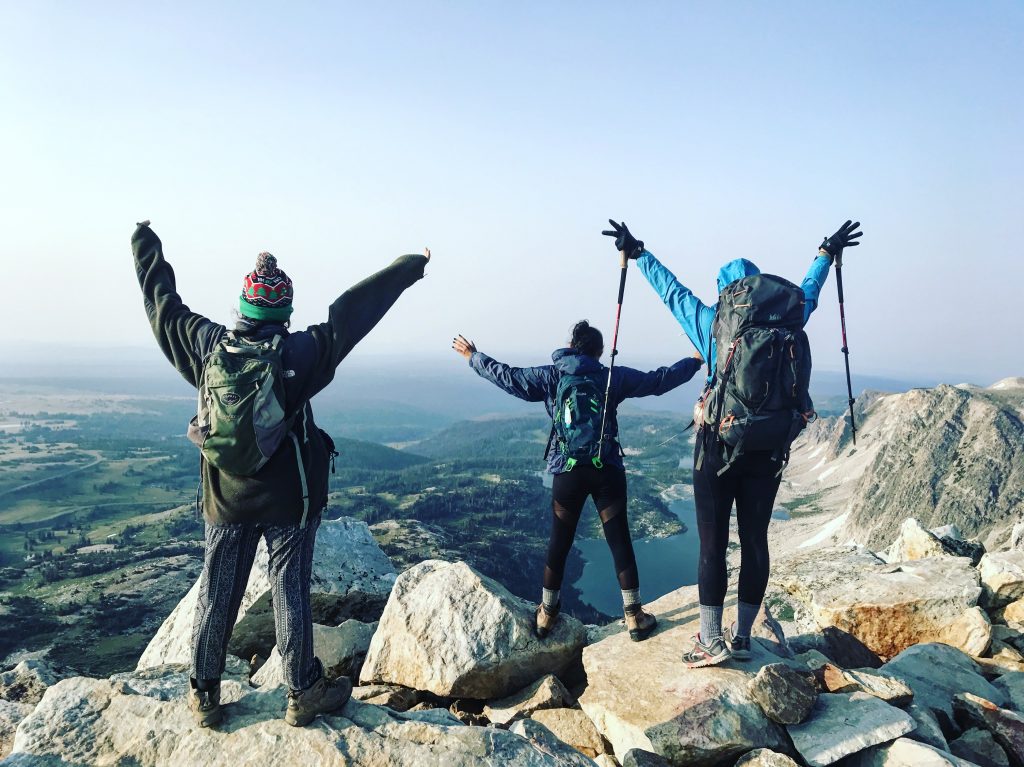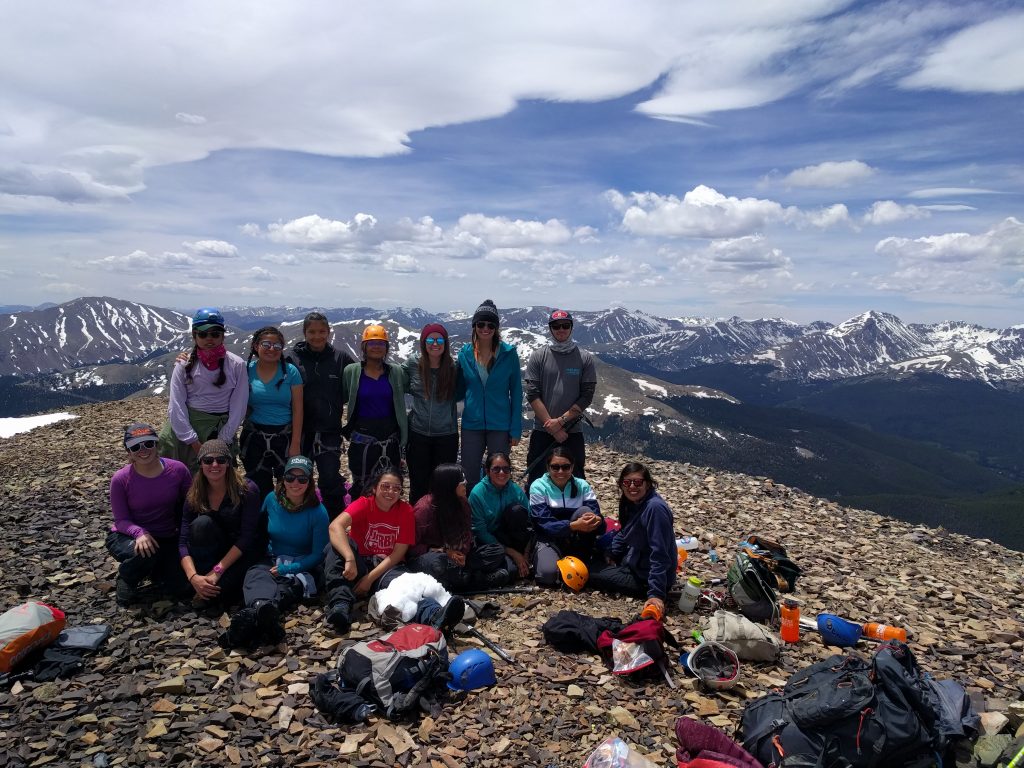By Kathleen Lyons Schneeman, CEO, Explore Austin
In July, I had the privilege of joining one of our boys’ teams of Explore Austin on their week-long Summer Wilderness Trip, a canoe voyage down the Potomac River. The heat was intense, the gear was heavy, and the river was flowing quickly due to a rainy summer. Throughout the week, these rising high school seniors—having completed five years of the Explore Austin program and now on the precipice of adulthood—showed up for one another with empathy, courage, and authenticity.
This was their final summer trip together. Around the campfire each night, I listened in awe as they shared personal stories, apprehension and goals for their future, reflections on all they’ve learned, and what it means to be a leader. What unfolded was more than a leadership lesson; it was a masterclass in belonging.
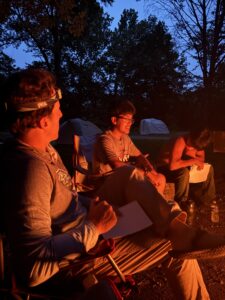
At Explore Austin, we believe that belonging begins with self-discovery and grows in community. Our 100% free, six-year program blends outdoor adventure with structured mentorship provided by caring volunteer adults to build adaptability, courage, and social-emotional skills. Put simply, belonging is at the core of our team-based program.
In March, I attended a SXSW EDU Conference presentation given by Dr. Barbara Logan Smith, Chief of Experience & Belonging at Teach For America, titled “Belonging: A Neurological Imperative for Students.” Her core message resonated with me: Belonging is not a luxury; it’s a neurological, biological, and sociological imperative.
Dr. Smith explained that belonging—feeling accepted, valued, and authentically seen—is as fundamental to human development as food or shelter. When youth experience belonging, their brains regulate stress more effectively, their immune systems function better, and they are more likely to thrive academically and socially. Conversely, when belonging is absent, the brain registers that exclusion as pain—real, measurable pain.
This science is not abstract to us at Explore Austin. We see it in real time: in a youth who finally volunteers to be “leader of the day,” in a teen who shows vulnerability without fear of judgment, in young people who learn that strength includes asking for help from their Mentors and peers.
These are not just “nice moments”—they are neurological rewiring in action. In a 2024 survey of the 280-plus youth in our program, 92% reported feelings of belonging at Explore Austin and trust in their Mentors. In a time where youth suicidal ideation is at an all-time high both locally and nationally, this is significant.
On the Potomac River, the senior boys’ team demonstrated what it looks like when belonging becomes the foundation. The way they navigated conflict with maturity, made collective decisions, and held space for one another’s stories showed just how powerful a trusted community can be. It wasn’t always smooth—nor should it be. Growth never is. But in the challenges, they leaned on the safe space they’ve built with their Mentors and peers to take emotional risks, stretch their perspectives, and lead authentically.
As leaders, educators, and community members, we must prioritize the creation of safe spaces where youth can be seen, heard, and supported. Dr. Smith urges us to remember: connection, connection, connection. At Explore Austin, we start with connection and build everything else from there.
In today’s world where disconnection and division are all too common, investing in belonging isn’t just good practice; it’s essential. When young people feel they belong, they begin to believe they can try and do hard things. Once they believe that, there’s no limit to what they can achieve.



